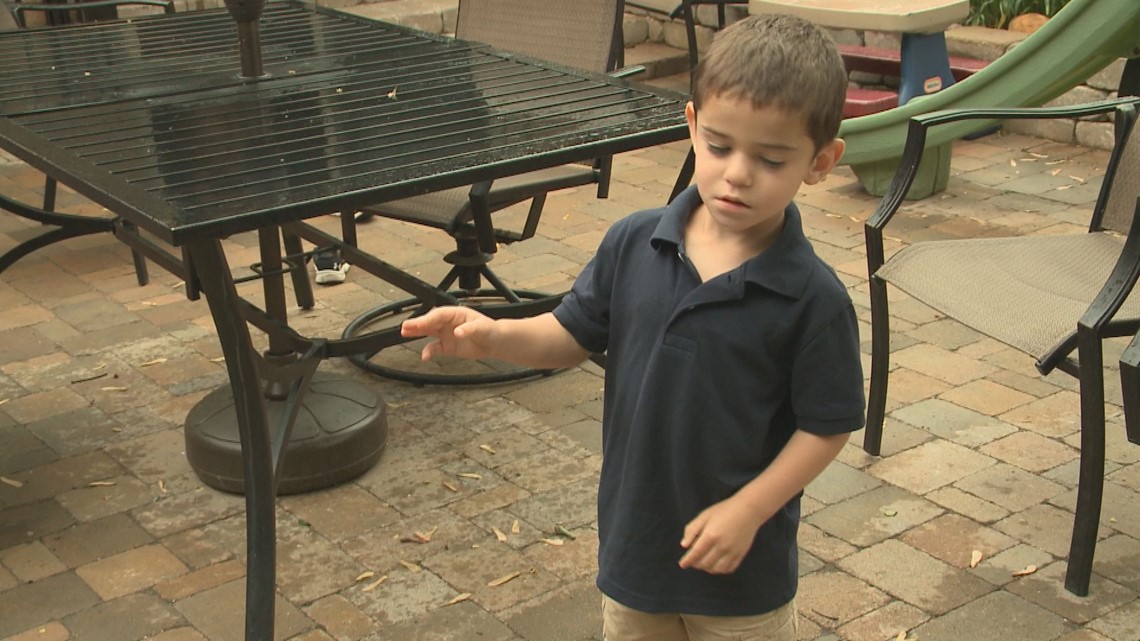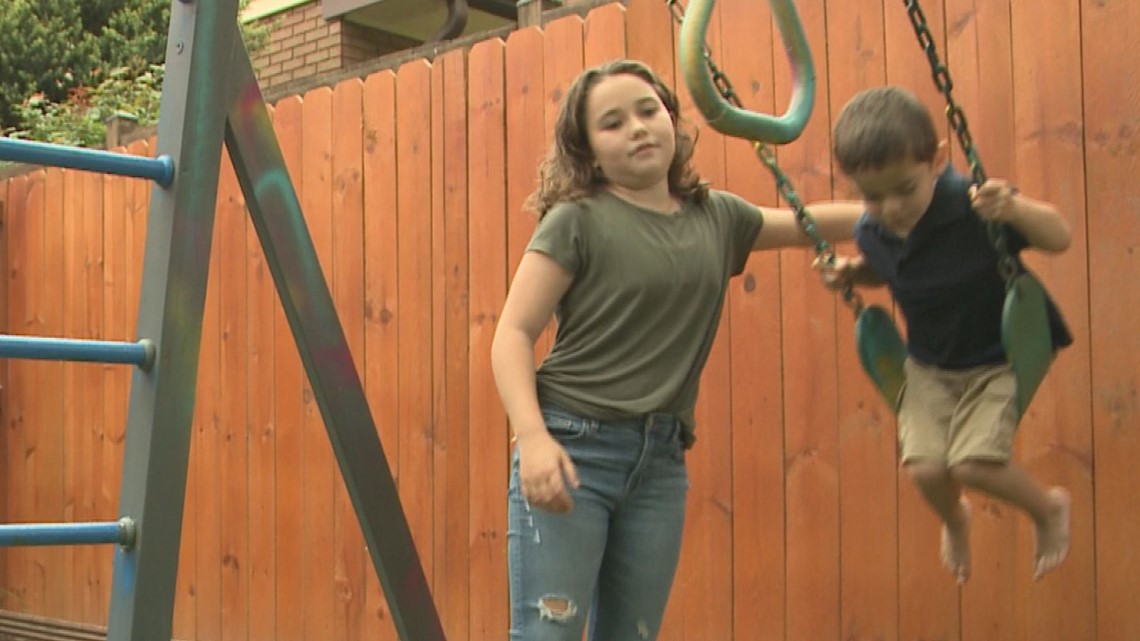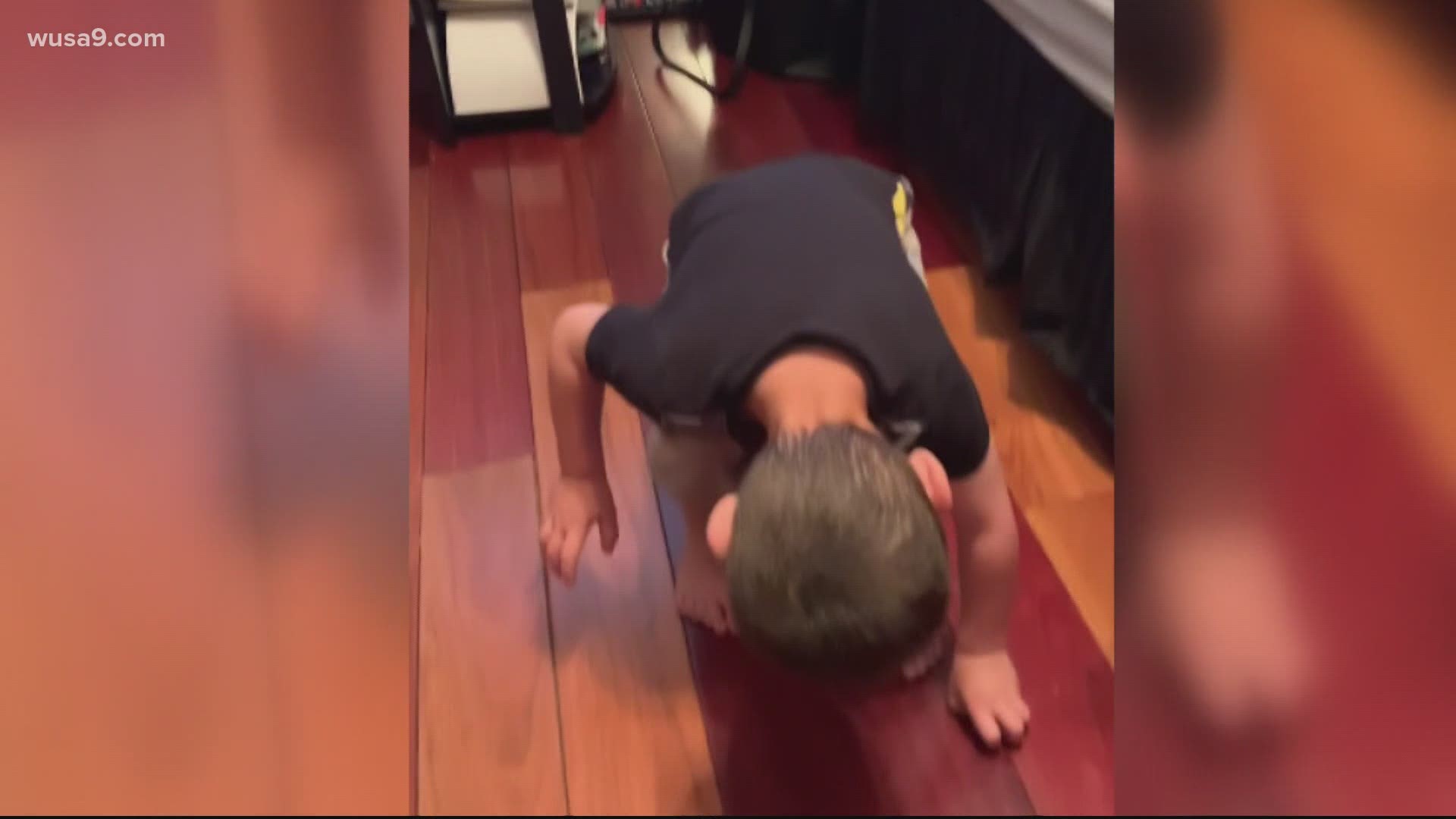ALEXANDRIA, Va. — It was just before Zachary Hirsch’s first birthday that his parents noticed he was different than his twin brother Josh.
“He wasn't crawling, he wasn't trying to pick himself up,” his mother, Leah Hirsch said.
When he finally did crawl, Zach seemed to freeze frequently throughout each day. It was almost as if he was a video "on pause."
The Northern Virginia family's confusion was followed by fear.
“We started looking at Google and we thought it was epilepsy,” his father, Keith Hirsch said. “We're reading all about it and it’s what most people thought were seizures.”
As he started to walk, it got worse. More than 70 times a day he would experience what doctors call “spells.”


Zach would freeze in mid-stride and slowly fall to the floor. Sometimes while running or climbing.
His parents consulted numerous neurological doctors. Keith said it was the nonstop "Type A" personality of his wife, Leah, that continued to search every avenue for answers.
“By the time we got into a genetic doctor and got the genetic testing done, it was almost like another year later before we had any answers of anything that could be done,” Leah said.
The test showed it wasn’t epilepsy. It was something else, a rare disease called: KCNMA1 linked channelopathy.
“Many children are diagnosed with epilepsy initially before they're finally diagnosed with this condition,” Dr. Sotirios Keros from Cornell University’s Medical School said.
There are more than 6,800 rare diseases diagnosed in the United States and they affect more than 30 million Americans. But research or treatments for these people can be challenging and even near impossible at times.
Which is the case for Zachary Hirsch.
“For this particular condition, it's rare and there are maybe a few dozen people around the world with it,” Dr. Keros said.
KCNMA1 linked channelopathy has a wide variety of symptoms. It can cause spells, seizures, even delay a child’s development.
But beyond that, there has not been much research done.
“You have to get the interest of universities, you have to get the interests of people to help fund this research,” Dr. Keros said.
Without research, it is hard to develop a treatment.
To treat Zach, his doctors have allowed him to use a medication normally reserved for ADHD. It has lessened his spells for now, but there is still a fair amount of people who don’t know about the long-term effects.
“All of the evidence that they have is anecdotal from parents,” Leah Hirsch said. “The doctors really need to get some clinical evidence to back up what's happening with this medication.”
This is why the Hirsch’s wanted to tell Zach’s story: To raise awareness. The hope is that the awareness promotes research and that research finds a cure for their son.


"I worry about Josh, his brother, and Michaela, his sister, having to take care of him when he gets older when we're probably long gone,” Keith Hirsch said. “That, that's my biggest fear.”
Dr. Keros and several other researchers are working to put together a research study involving Zach and the other patients they know have his disease.

